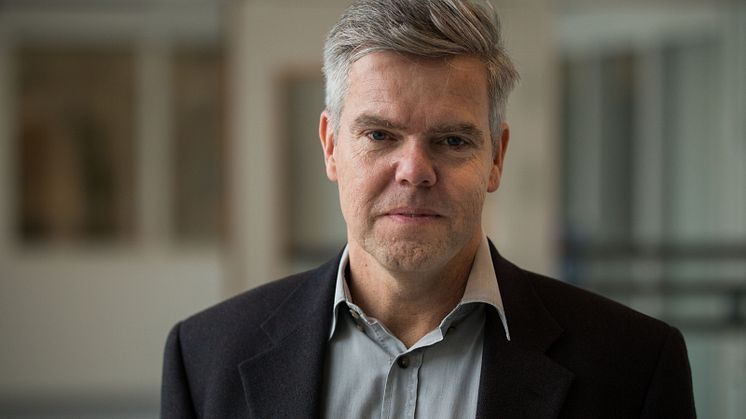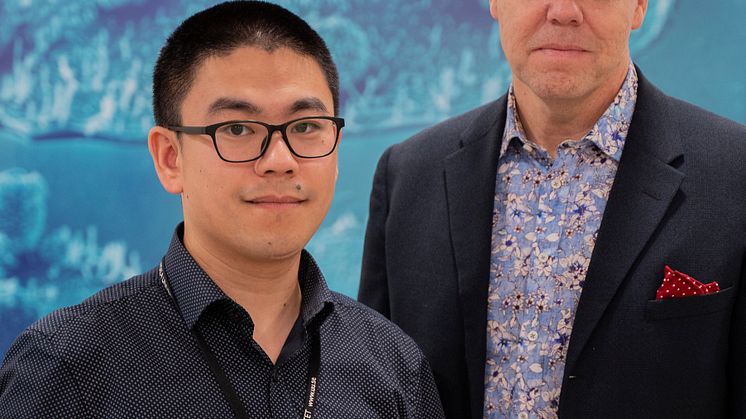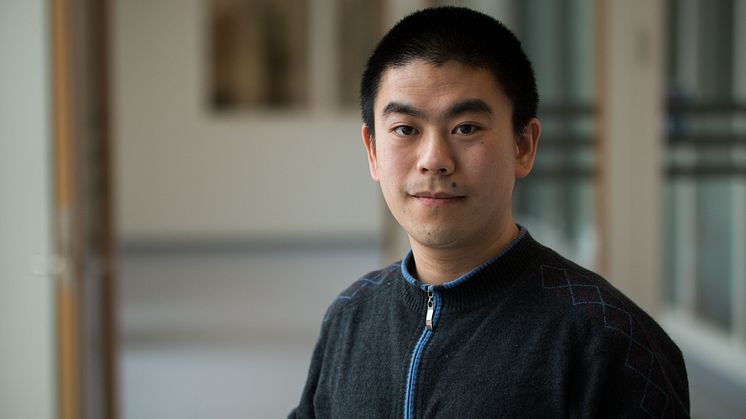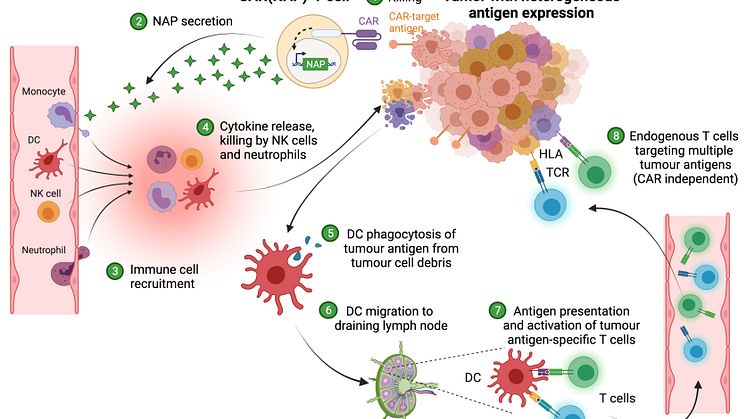Press release -
Armed CAR-T cells to better fight cancer
Immunotherapy is increasingly becoming a successful way to treat cancer. Researchers at Uppsala University have now developed armed CAR-T cells that reinforce the immune defence against cancer and that could increase the possibilities to successfully treat solid tumours. The study has been published in the journal Nature BioMedical Engineering.
The use of immunotherapy to treat cancer is increasing and genetically modified immune cells called CAR-T cells are efficacious for treating blood cancer. Unfortunately, their efficiency is impaired in solid tumours due to local immune suppression in the tumour.
To avoid this problem, the Uppsala researchers have armed CAR-T cells by introducing a gene that encodes the immune stimulatory protein NAP (neutrophil-activating protein) from the bacteria Helicobacter pylori. When NAP is released from the CAR-T cells this creates a proinflammatory environment which directly combats the immunosuppressive microenvironment in solid tumors and strengthens the function of the CAR-T cells.
“We believe that this new technology to arm CAR-T cells has the potential to completely change CAR-T cell treatment. NAP, secreted from the armed CAR-T cells can revert the tumours from immunologically ‘cold’ to ‘hot’. In addition, NAP can also recruit other types of immune cells that can attack the tumour cells that are not recognised by the CAR-T cells,” says Di Yu, researcher at the Department of Immunology, Genetics and Pathology, who has led the study together with Professor Magnus Essand at the same department.
To investigate the effect of CAR(NAP)-T cells, the researchers treated mice with different types of tumours and saw that tumour growth was reduced. The survival also increased compared to when CAR-T cells without NAP were used. The researchers also studied human CAR(NAP)-T cells in in vitro experiments and found that they had a better immunostimulatory capacity that conventional human CAR-T cells.
“We have a strong tradition with CAR-T cell treatment of cancer in Uppsala, with Gunilla Enblad and Angelica Loskog treating the first patients in Europe back in 2014. Two academic trials, with in total 39 treated patients, have been performed at Uppsala University Hospital. Based on the strong results in our Nature Biomedical Engineering paper, we are now planning for a clinical trial with our new armed CAR-T cells. We hope to treat the first patient by the end of this year, “says Magnus Essand.
The upcoming clinical trial has received financial support from Cancerfonden, Vinnova and Elicera Therapeutics.
Elicera Therapeutics was formed by Uppsala University researchers Di Yu and Magnus Essand in order to bring their inventions into clinical trials with the aim to help cancer patients. Uppsala University and Elicera Therapeutics have agreements that Elicera should try to develop these inventions in to medicinal products.
Jin et al. (2022) CAR T cells expressing a bacterial virulence factor trigger potent bystander antitumour responses in solid cancers, Nature Biomedical Engineering, doi: 10.1038/s41551-022-00875-5
For further information, please contact:
Di Yu, Di.yu@igp.uu.se, + 46 (0)70-7204196
Magnus Essand, Magnus.essand@igp.uu.se, + 46 (0)70-3449579
Watch a short video about the research. (1:43 min)
Short video from Elicera Therapeutics who develops the invention into medicinal products. (2:24)
Topics
Categories
Uppsala University
The first University in Sweden. Quality, knowledge, and creativity since 1477. Education and research of the highest quality and relevance to society, business, and culture. Uppsala University is ranked among the world’s top higher education institutions. www.uu.se





